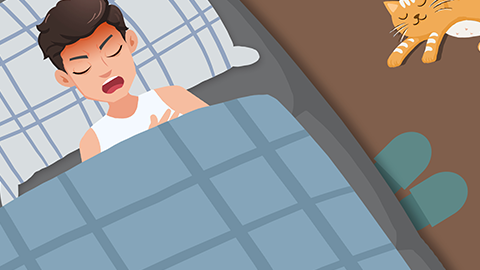What to do about fever caused by gastrointestinal bleeding
Generally, fever accompanying gastrointestinal bleeding may result from the body's stress response after bleeding, temporary decline in immunity due to blood loss, secondary infection from acute gastritis, perforation complicating peptic ulcer, cholangitis affecting the stomach, and other similar causes. It is recommended to seek timely medical attention, identify the underlying cause, and then improve the condition under a doctor's guidance through general treatment, medication, surgical treatment, and other approaches. The detailed analysis is as follows:

1. Body's stress response after bleeding: Following gastrointestinal bleeding, the body enters a state of stress, affecting the temperature-regulating center and causing low-grade fever. Bed rest, reduced physical activity, drinking more warm water to maintain hydration, close monitoring of body temperature, and avoiding excessive fatigue to reduce physical strain are recommended.
2. Temporary decline in immunity due to blood loss: Blood loss from gastrointestinal bleeding weakens the body's immune defenses, making it more susceptible to external pathogens and resulting in fever. Consuming protein- and iron-rich foods such as lean meat, eggs, and spinach is recommended to help restore strength and boost immunity. Keeping warm and avoiding cold exposure are also important.
3. Secondary infection from acute gastritis: If acute inflammation of the gastric mucosa is not controlled, secondary bacterial infection may develop, causing fever along with symptoms such as stomach pain and hematemesis. Patients should follow medical advice and use medications such as omeprazole enteric-coated capsules, amoxicillin capsules, and clarithromycin tablets to suppress gastric acid secretion and control the infection.
4. Perforation complicating gastric ulcer: A gastric ulcer that progressively worsens can lead to perforation of the stomach wall, allowing gastrointestinal contents to enter the abdominal cavity and cause infectious fever, often accompanied by severe abdominal pain. Immediate fasting and water restriction are necessary, and patients should use medications such as ceftriaxone sodium for injection, metronidazole injection, and levofloxacin injection as directed by a physician to control infection.
5. Cholangitis affecting the stomach: When inflammation of the bile duct spreads to the stomach, it can cause gastric mucosal damage and bleeding, along with fever caused by inflammatory stimulation. Symptoms may include jaundice and right upper quadrant abdominal pain. Patients should follow medical advice and use medications such as ursodeoxycholic acid capsules, cefixime dispersible tablets, and anti-inflammatory gallbladder tablets to alleviate bile duct inflammation. If bile duct obstruction is caused by stones, surgical removal of the stones via bile duct incision (choledochotomy) may be necessary to restore bile duct patency.
In daily life, maintaining regular eating habits and avoiding spicy, raw, hard-to-digest foods is important. Smoking and alcohol consumption should be avoided. During fever, physical cooling methods such as warm water sponge baths can be used as adjunctive measures to reduce body temperature. Maintaining emotional stability and avoiding anxiety and stress will help promote recovery.




